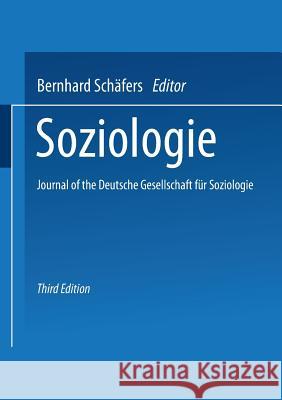Soziologie: Journal of the Deutsche Gesellschaft Für Soziologie » książka
topmenu
Soziologie: Journal of the Deutsche Gesellschaft Für Soziologie
ISBN-13: 9783322957573 / Niemiecki / Miękka / 2012 / 301 str.
Kategorie:
Kategorie BISAC:
Wydawca:
Vs Verlag Fur Sozialwissenschaften
Seria wydawnicza:
Język:
Niemiecki
ISBN-13:
9783322957573
Rok wydania:
2012
Wydanie:
1994
Numer serii:
000036358
Ilość stron:
301
Waga:
0.37 kg
Wymiary:
21.0 x 14.8 x 1.7
Oprawa:
Miękka
Wolumenów:
01











